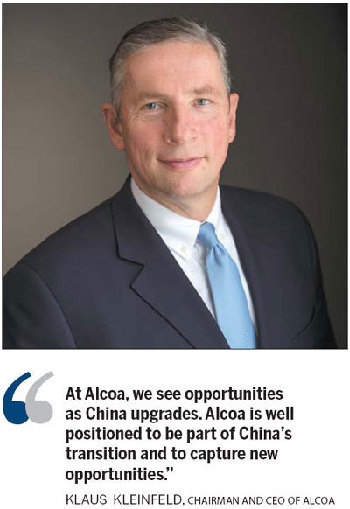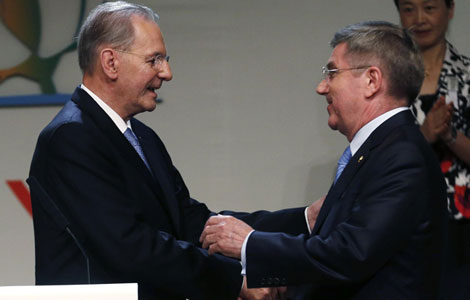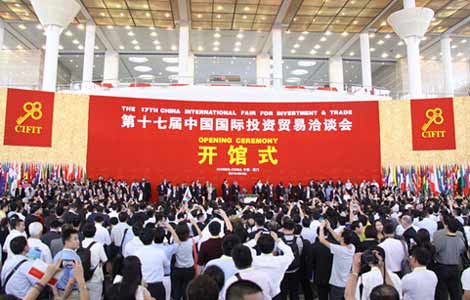Navigating challenging markets:Alcoa CEO
Updated: 2013-09-11 07:31
By Zhuan Ti (China Daily)
|
||||||||

Klaus Kleinfeld, chairman and CEO of Alcoa, has participated in the Annual Meeting of the New Champions - or Summer Davos - for five years in a row. Always a heavyweight speaker at the forum, he shared some of his insights with China Daily before he speaks to the meeting that opens today.
"Meeting the Innovation Imperative" serves as the theme of this year's Annual Meeting of the New Champions. How important is innovation to your company and China's economic development?
Science and innovation are at the core of what we do at Alcoa. Our commitment to keep advancing what we make and how we make it has allowed us to remain an industry leader for the past 125 years.
Since inventing the process for producing aluminum, Alcoa has been innovating new and better uses for the metal. Combining our expertise in how materials can work together with structural and design innovations, we help produce some of today's highest-tech products - from parts for advanced jet engines to sheets for the most sought after cars and consumer planes.
China's economic development over the last 30 years has been extraordinary, and its continued growth will be driven by innovation. Alcoa has been and remains as committed as ever to being part of China's growth story.
We have invested more than $800 million in China since 1993, making us the largest foreign investor in the country's aluminum industry. And we continue to focus on producing high-end fabricated aluminum products in China, through partnerships with China Power Investment Corp, Commercial Aircraft Corp of China and through our new Alcoa wheel production facility in Suzhou.
Chinese Premier Li Keqiang reiterated that China needs to upgrade its economy. What's your view on that? What challenges or opportunities will it bring to the aluminum industry and Alcoa?
Led by President Xi and Premier Li, China has set out a vision for an upgraded economy focused on providing high-value goods and services, with a greater focus on urban and environmental sustainablity.
China's rapid growth during the last 30 years has lifted hundreds of millions of Chinese out of poverty, built world-class cities, and fostered globally competitive businesses. It also has left China with structural challenges and environmental degradation. Tackling these challenges are key to China's future growth.
At Alcoa, we see opportunities as China upgrades. Alcoa is well positioned to be part of China's transition and to capture new opportunities.
China's overcapacity problem in the aluminum industry has worsened in the first half of this year because of new production capacities. How does this affect the industry and your company? Do you have any suggestions for the Chinese government to curb overcapacity?
China and the rest of the world operate as two separate aluminum markets. The Chinese aluminum market is largely self-contained, producing enough aluminum to meet its own needs and therefore not exporting.
While China's aluminum supply and demand is essentially in balance, we estimate that 41 percent of its smelting capacity is unprofitable because of low aluminum prices and the high cost of the system. The Chinese government is taking steps to try to curb overcapacity, but it is not easy to decommission large, complex facilities.
We have experience in repurposing aluminum plants into new commercially successful businesses. It takes commitment and clear vision by government and close cooperation with business to be successful. Alcoa is also open to exploring opportunities abroad with Chinese partners, which would further help minimize the domestic environmental impact of the industry. We have already established a strong relationship with China Power Investment and look forward to
Most Viewed
Editor's Picks

|

|

|

|

|

|
Today's Top News
China's Hawaii goes fishing for talent
Timetable not set for Six-Party Talks
US Senate halts vote on use of force in Syria
Li plots course ahead
New iPhones a dud in China, so far
Kerry to meet Russian counterparts over Syria
Trending news across China
IPO to land deals in Hollywood
US Weekly

|

|














